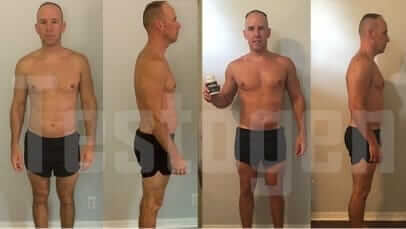Carbohydrates are always a hot topic in nutrition. Does cutting carbs help you lose weight? Is it healthier to eat a low-carbohydrate diet? Or do we all need carbs in our diet?
If you’ve ever wondered about eating a totally carb-free diet, there’s a lot you need to consider. Our look at the zero-carb diet will get you started.
What is the role of carbohydrates in the body?
First up, a bit of basic science. There are three macronutrients in the food we eat: protein, carbohydrates, and fats. Carbohydrates provide your body with glucose, which is needed for some chemical processes in your metabolism, particularly in your brain.
However, there’s a lot more to carbs than glucose. Carbohydrate foods tend to be naturally low in fat and a moderate-calorie source of energy (4 calories per gram, compared to fats at 9 calories per gram). Our bodies tend to like running on carbohydrates – they’re an easy source of energy for fuelling the muscles, brain, and internal organs. And carbohydrate foods – especially grains, vegetables, and beans – are a valuable source of fiber, which promotes healthy digestion.
Can we survive without carbs?
Back to the question: Is it possible to eat a long-term zero-carb diet and survive? The answer is yes. In fact, lots of people eat a keto (ketogenic) diet and do very well on it.
In literal terms, carbohydrates are not essential, because the human body can make its own glucose by breaking down other compounds in a process called gluconeogenesis. This process actually happens to all of us, even if we eat plenty of carbs. It’s how the body continues to create glucose overnight before we break our fast. So it’s possible to eat a totally zero-carb diet and survive.
Don’t confuse a zero-carb diet with a protein-only diet. A carb-free diet must still include essential fats, vitamins, minerals, and other important micronutrients. A protein-only diet would put you at risk of nutrient deficiencies and would probably be very difficult (and expensive!).
Potential benefits of no-carb diets
Eating fewer carbs than normal will result in short-term weight loss for most people, but it’s important to recognise that this will be weight loss, not fat loss. When you reduce the carbohydrates in your diet, the initial glycogen loss will have a corresponding water loss (about 2g of water for every 1g of lost glycogen). This is what people mean when they talk about “water loss” on a low-carb diet. But it isn’t a long-term weight loss strategy and won’t actually help you lose body fat.
To lose body fat, you need have a calorie deficit – either eating fewer calories than you expend, or burning more energy than you take in.
Designing a zero-carb diet
To eat a truly zero-carb diet, you’ll need to pay careful attention to carbohydrates in vegetables, pulses, dairy products like milk and yoghurt, and even some drinks. Once you start paying attention to your carb intake, you’ll be surprised by how many ingredients contain trace carbs. If you want to eliminate carbohydrates completely, even those trace amounts need to be accounted for.
It would be a mistake to simply slash carbs from your diet without keeping an eye on your overall calorie intake. You’ll need to replace the lost calories from carbohydrates with calories from protein and/or fats. Protein has 4 calories per gram (like carbs), and fats have 9 calories per gram.
Popular zero-carb foods include red meat, pork, seafood, steak, oily fish, poultry, whole eggs, hard cheese, butter, ghee, and small amounts of very low-carb vegetables like leafy greens.
One of the biggest problems of a zero-carb diet is lack of fiber. You can address this by taking a supplemental fiber like psyllium husk in water.
Carbohydrates: it’s your choice
The most important thing to remember when thinking about your macronutrient split is that carbs are not the devil, but they aren’t essential either. Some people, especially active and athletic folk, find they train and perform much better with a healthy amount of carbohydrate in their diet, especially before and after exercise. Other people do very well on a low- or even zero-carb diet.
If you want to experiment with reducing carbs, just remember to keep your calorie intake steady, eat a wide variety of foods, and not feel tied to one way of eating. The best diet is one you can stick to, enjoy, and feel great on. Diet shouldn’t be dogmatic. It’s your body, so do what’s best for you.
Stay healthy!






